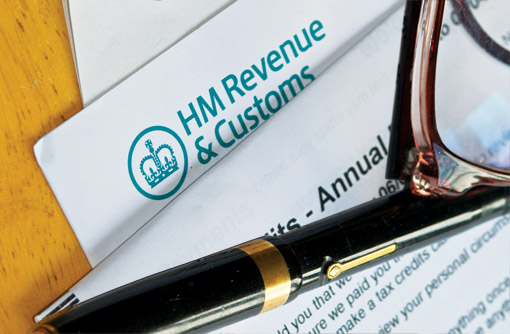How to… prepare for a VAT inspection

In the first of a series of farm office-based features, Suzie Horne finds out what to expect from a VAT visit.
Prepare thoroughly and don’t worry – that’s the main advice from Gill Caine, who has handled five VAT inspections for farm businesses in recent years.
“There should be no need to panic, it’s a routine review – if anything is wrong it will be dealt with and you can move on,” she says.
“If you have any questions on VAT, ask the inspector for help. This is your chance to make the most of having an expert on site.”
Although inspectors can arrive unannounced, seven days’ notice is usually given for a routine inspection and a suitable time arranged.
It is generally confirmed in advance who they needs to see, this should be the person that actually does the VAT return, and possibly your accountant if there is anything you are really concerned about, says Gill, who works as a Farmplan customer support adviser and as a farm book-keeper
HMRC will confirm in writing the name and contact information for the visiting officer, roughly how long the visit will take and asking for the correct records to be on site.
Sometimes the main purpose of the visit will be to cross check the correct tax treatment in suppliers’ or customers’ records. If this is the case, the VAT officer will tell you when making the appointment, says HMRC.
A pre-inspection review:
• Go through records and check all required paperwork is to hand – some may be at the accountants and will need bringing back for inspection
• Clarify anything you are unsure about with accountant
• Check recommendations made on previous inspection have been followed
• Do you have both standard and exempt supplies – ask your accountant if you should be doing partial exemption calculations
• Do you reclaim full VAT back on all shooting costs and then have a mixture of let and private shooting days – if so, check with accountant that this is in order, you may be over claiming VAT on purchases
• Have you bought or sold anything where you now think VAT treatment was incorrect – it may be worth trying to get this sorted or have copies of paperwork and discuss during the visit
What records do inspectors usually ask for?
• VAT certificate and certificate of registration
• Annual accounts for last two complete years
• Bank statements
• Current year books and accounts, cashbook, petty cashbook, sales and purchases day books – if on a manual recording system
• Sales (income) and purchase (expenses) invoices
• Copy VAT returns and details of entries making up figures on the return
• Any additional supporting documentation or correspondence you think may assist
The visit
• Make sure inspector has plenty of space
• Have books and paperwork ready and accessible, clearly labelled
• Ensure the room is heated properly, provide basic refreshments
• Provide name and contact details of accountant and bank
• Visits are likely to take a few hours but sometimes additional information is needed so plan to spend the day in the office
“If records are computerised tell the inspector which accounting software you use and have printouts of each VAT return submitted plus all supporting paperwork,” suggests Gill.
“They will also ask if you feel there is anything they ought to know – this is the time to discuss anything you may be unsure about, or let them know anything you now realise was wrong. This could save you a lot of trouble in the long run and perhaps avoid mis-declaration penalties.”
At the end of the visit, the inspector will review the findings and agree any action to correct mistakes in calculations or make changes in accounting procedures.
If you disagree with a decision, discuss it with the visiting officer who will tell you how to get a review or how you can appeal if you disagree with that review.
After the visit
A letter from the inspector should arrive within a few days of the visit confirming any adjustments required, usually on the next period’s VAT return.
“Ensure any recommendations are followed. If you are unsure about changes, contact the inspector and ask for clarification, I have found they are happy to help, or speak to your accountant,” says Gill.
